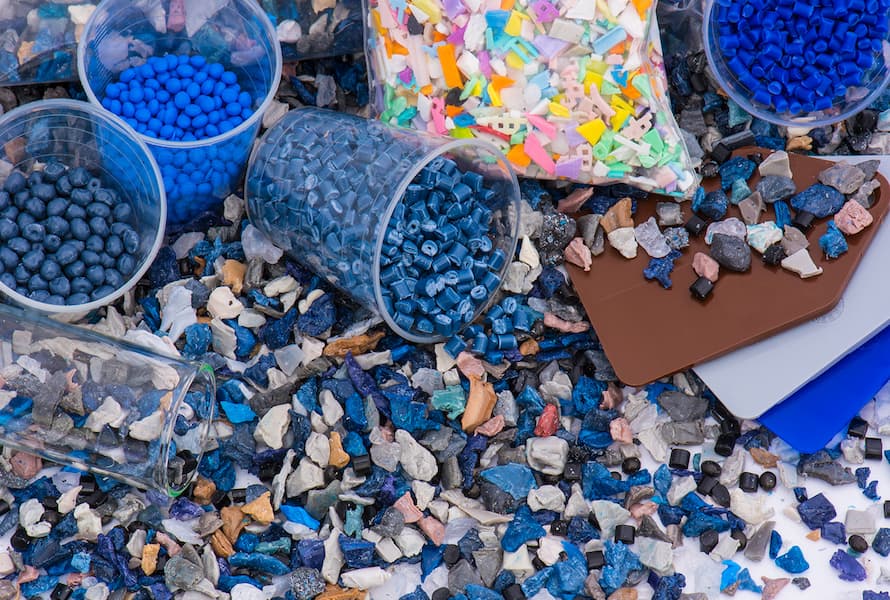
The world generates an enormous amount of plastic waste and proper disposal and recycling of this waste have become increasingly important for environmental sustainability. Recycling plastic is a critical step toward reducing plastic waste and pollution. Although recycling has many advantages, there are also potential drawbacks. Additionally, plastic recycling can be complex, and adding various chemical additives can enhance the quality and usability of the recycled plastic material.
In this article, we will explore the pros and cons of recycling plastic and delve into the top three additives for plastic recycling that you should know about.
Related:
- What are plastic additives? 8 most common plastic additives in plastic industry
- How to start a plastic recycling business
- Products made from recycled plastic bottles - 6 examples
- 25+ facts about recycling plastic bags
- What is American Milkman Model and how it could save the recycling industry?
1. Pros and cons of recycling plastic
Recycling plastic has both pros and cons. Here are some of the key advantages and disadvantages of recycling plastic:
1.1. Pros of recycling plastic
Less plastic garbage in landfills
People dispose of plastic garbage by dumping it in landfills. These landfills, however, often lack any aesthetic appeal and produce a lot of offensive odors, which may irritate both locals and visitors. Recycling plastic may thus reducing the need for landfills since more plastic can be reused and recycled than simply thrown into such dumps.
Lower level of soil pollution
Waste disposed of in landfills not only produces a pungent odor but also contributes significantly to the contamination of the surrounding soil. Plastic trash that is dumped in landfills will eventually break down, and the hazardous chemicals that are contained in it will be leached into the groundwater and soil.
In the long run, those chemicals will also be carried through the soil and into our groundwater. This may be harmful, particularly in areas of the country where pure water is already a valuable commodity that is in short supply. Therefore, recycling plastic may also be an excellent approach to safeguard our land and our groundwater from the severe pollution that threatens both of these resources.
Reduce greenhouse gas emissions
Recycling plastic has the added advantage of lowering our greenhouse gas emissions. The quantity of greenhouse gasses can be reduced overall if more plastics are recycled since fewer new plastics need to be made. Reduced greenhouse gas emissions, in turn, suggest that we may somewhat halt global warming.
In addition, recycling plastics reduces the amount of garbage that must be incinerated, which is one of the most significant benefits of doing so. The incineration of garbage results in the release of significant quantities of toxic gasses into the environment, which, in turn, causes significant levels of air and particle pollution.
Protect our oceans
Though many of us may not yet be aware of it, our seas are already severely contaminated and a significant portion of their surface is coated with plastic. As a result, finding a solution to the plastic trash issue is urgently needed to save our seas. We can also benefit from plastic recycling in this way because if we can recycle more plastic, less of our total plastic trash will end up in the ocean.
Protect animals' and plants' natural environments
Many of our animal and plant species may soon become endangered or possibly extinct if we continue to utilize plastics as we have for the last several decades. The natural habitats of such animals and plants must thus be preserved. This calls on us to take measures to ensure that fewer pieces of plastic garbage wind up in our seas and other natural areas.
We all need to use less plastic in order to accomplish this aim. Moreover, by recycling plastic, we may further have a good influence.
Reduce the microplastic issue
Another significant issue that has become more severe over the last several years is microplastic pollution. When plastic bottles or other types of plastic goods break down over time, microplastics are produced. Because these microplastics will eventually make their way up the food chain and into human bodies, they pose a threat not only to the health of fish and other animals that will consume them but also to the health of humans.
Therefore, it is essential that we adopt plastic recycling techniques to limit our plastic waste in order to stop the seas from being overpopulated with microplastics.
Protect the poor
Large volumes of plastic trash are also delivered to impoverished developing nations on a daily basis under the idea of environmental dumping. Thus, in order to safeguard impoverished garbage-receiving nations from large loads of waste, we should endeavor to recycle as much plastic as feasible.
Reduce the detrimental consequences that pollution from plastic has on tourism
Plastic pollution is also damaging to the tourist business. Many individuals wish to spend their holiday at pleasant clean beaches instead of contaminated ones. Hence, plastic recycling may also assist the tourist sector quite a lot because less plastic would wind up in our seas if more plastic is recycled.
Produce employment
Recycling plastic also creates a significant number of work opportunities. Thus, if we extend plastic recycling on a worldwide scale, chances are that many people in impoverished developing nations may gain new work possibilities, which may not only assist our environment but also those individuals to enhance their total wealth and get out of poverty.
1.2. Cons of recycling plastic
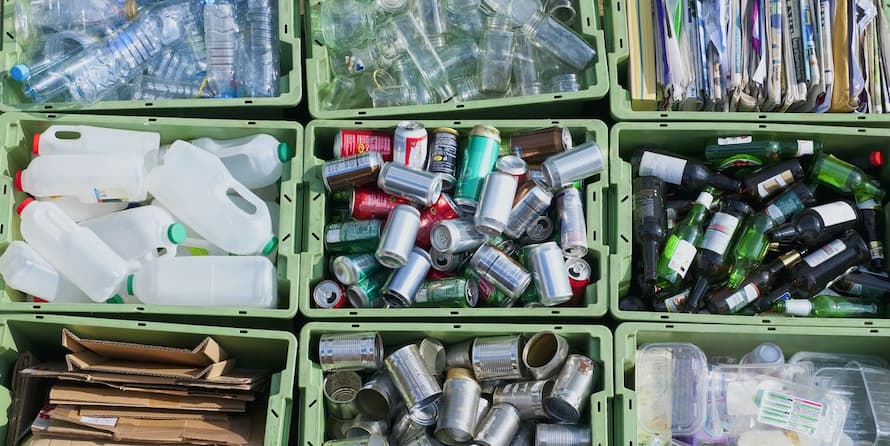
Take energy
Have you ever come across the term "Reduce, Reuse, and Recycle?" before? However, there are some environmentalists who believe that "reduce" and "reuse" provide more advantages to the environment than "recycle." This is because consuming fewer products has a greater positive impact on the environment than consuming more and recycling what you can.
Lead to pollution
Some contend that recycling's environmental advantages are exaggerated since it has the potential to pollute. This is expressed specifically in reference to recycling electronics. Many gadgets intended for recycling are sent to less-developed nations where they are manually sorted. Metals and other chemicals may contaminate the land and water where recycling is being done during the sorting process. The ecosystem and its people suffer as a result.
Costly
Some recycling opponents claim that the costs outweigh the advantages or exhaust available resources in the community. A few cities and municipalities claim they cannot afford to run recycling programs. The cost of recycling may sometimes be higher than the cost of disposing of garbage in landfills since landfill space is often inexpensively accessible in the United States.
Naturally, recycling certain materials is more expensive than recycling others, which is why some local governments decide not to recycle things like glass or plastic. The price of recycling may vary depending on the materials recycled as well as how the recycling program is run and how much demand there is for recycled products.
Processes for recycling plastic are sometimes fairly ineffective
It's possible that plastic recycling methods have not yet been perfected in certain nations, and there's a fair likelihood that in other countries, such recycling systems are quite ineffective and may even be doing more damage than good. However, this varies from country to country.
Volatile organic compounds (VOCs) are released into the atmosphere
The recycling of plastics results in the emission of considerable quantities of volatile organic compounds (VOCs) into the environment. These VOCs may be extremely hazardous to human health and are one of the drawbacks of recycling plastics.
Time-consuming
Making plastic garbage acceptable for effective recycling might take a lot of time. Workers often have to remove garbage by hand, and sometimes the juice isn't even worth the squeeze.
Give customers a bad reason to purchase more plastic goods
A lot of individuals believe that by purchasing recyclable plastics, they are helping the environment. Although it is preferable to purchase recyclable plastic over conventional ones, using plastics is still very bad for the environment. This is true even if the plastics are recyclable since there are still plenty of alternatives that are far less harmful to the environment.
As a result, many individuals can have an inaccurate perception of the real effects of recyclable plastics on the environment, which would encourage them to purchase more plastic goods rather than less.
Only a few times can plastics be recycled
Additionally, plastics cannot be recycled endlessly. The idea of recycling plastic only holds true to a certain degree since plastics will eventually become unusable for recycling.
Recycled plastic may be of lower quality
Some items manufactured from recycled plastics might likewise be of inferior quality than those made from brand-new plastics. Therefore, take care to do your research before purchasing anything made from recycled plastics.
2. 3 common additives for plastic recycling
2.1. Odor remover additive for recycled plastics
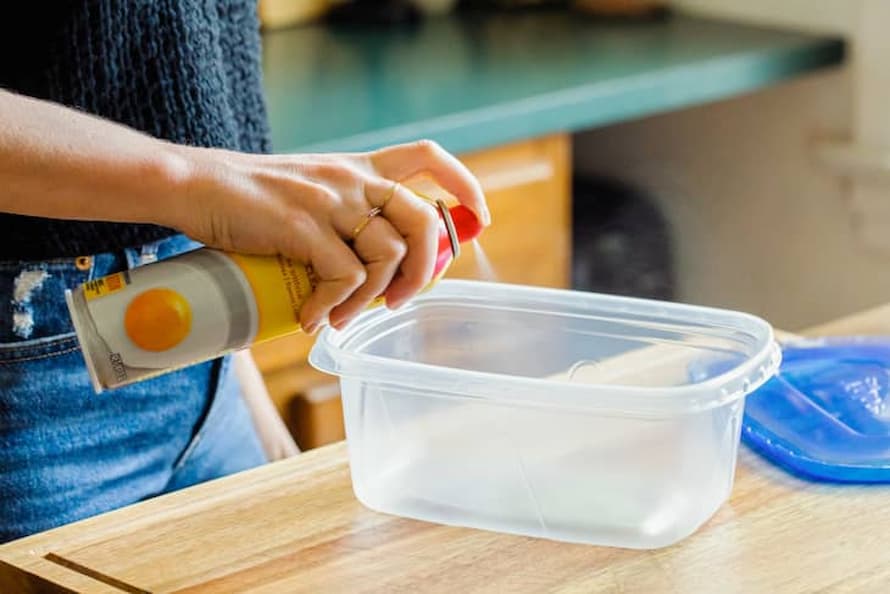
The recycling process may release residual chemicals or contaminants that can cause unpleasant odors, potentially affecting the quality and marketability of the recycled plastic. Therefore, odor remover additive for recycled plastics is added during the recycling process to remove any unpleasant smells or odors.
Applications
The use of odor remover additives for recycled plastics is essential in the production of various products, including food packaging, toys, household goods, and personal care products. These products need to be free from any odor that may contaminate the contents or affect the consumer's experience. The odor remover additive for recycled plastic makes it possible to achieve this objective.
Benefits
- Improves Product Quality: Since waste plastic is deodorized, the quality of the finished product is guaranteed.
- Enhances Marketability: Recycled plastics that are free from unpleasant odors are more marketable, making them an attractive option to manufacturers looking to use eco-friendly materials.
- Reduces Waste: The odor remover additive can be used to remove unpleasant odors from recycled plastic, making it possible to recycle plastic that would have otherwise been considered unusable. This helps to reduce waste and contributes to a more sustainable approach to the management of plastic waste.Safe and
- Environmentally Friendly: Most odor remover additives are made of natural substances, making them safe and environmentally friendly. They also ensure that the recycled plastic does not contain any harmful chemicals or contaminants.
Challenges
The effectiveness of the odor remover additive may vary depending on the type of plastic being recycled, the nature of the contaminants, and the concentration of the additive used. Manufacturers may need to conduct testing to determine the optimal concentration of the additive for specific types of recycled plastic.
In short, the use of an odor remover additive for recycled plastics is essential to ensure the production of high-quality products that meet safety standards and are environmentally friendly. The odor remover additive helps to remove any unpleasant odors associated with recycled plastic, making it possible to produce high-quality products that are marketable and reduce waste. While challenges may exist, the potential benefits of its use make it a worthwhile investment for manufacturers looking to use eco-friendly materials.
2.2. Antioxidant for recycled plastics

Recycled plastics provides an eco-friendly alternative to virgin plastics, which are derived from non-renewable sources. However, one of the main challenges associated with using recycled plastics is their poor resistance to weathering, which can reduce their lifespan and make them less suitable for various applications.
Antioxidant additives are added to recycled plastic materials to enhance their resistance to environmental factors such as sunlight, heat, and moisture. The aim is to improve the durability of recycled plastic materials and make them more suitable for use in outdoor applications, which require resistance to weathering.
Applications
Antioxidant additives are commonly used to produce plastic products that are exposed to outdoor environments, such as outdoor furniture, building materials, automotive parts, and garden equipment. These applications require plastic materials that can withstand the effects of weathering without losing their physical properties, such as tensile strength, elongation, and impact resistance.
Benefits
- Longer product lifespan: The addition of anti-oxidant additives makes recycled plastic materials more durable, which results in a longer product lifespan.
- Cost-Effective: Using anti-oxidant additives for recycled plastics reduces the need for virgin plastics and increases the use of recycled plastic. This helps to reduce costs and promote sustainability.
- Environmental Benefits: Using antioxidants helps promote the use of recycled plastics, thereby reducing the use of virgin plastics and reducing carbon emissions.
- Protection of Products: antioxidant additives protect plastic products from discoloration, chalking, cracking, and other forms of degradation caused by environmental factors.
In short, the use of anti-oxidant additives is a crucial component in the production of recycled plastic materials that can withstand environmental factors. The potential benefits of using such additives make them a viable option for manufacturers.
2.3. Processing aid additive for recycled plastics
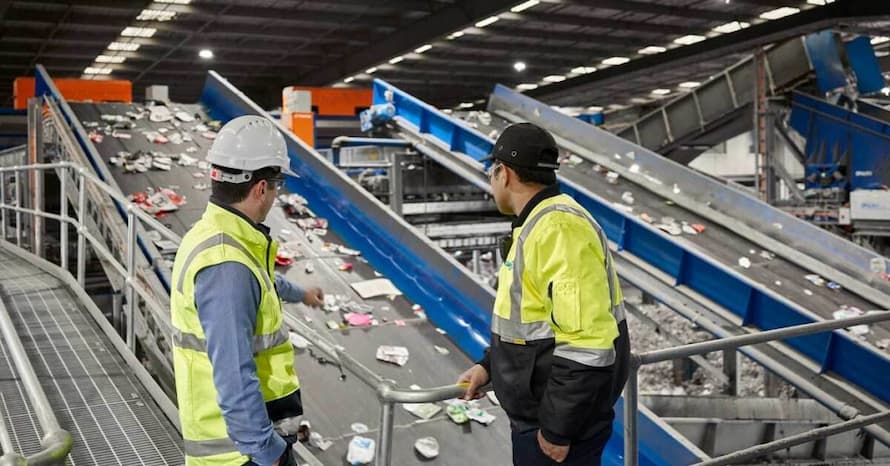
Processing aid additives are added to recycled plastics during processing to improve their quality, efficiency, and output. It enhances the physical and mechanical properties of recycled plastics and makes them more suitable for various applications.
Applications
Processing aid additives are commonly used in the production of recycled plastic products that require high mechanical properties, such as impact resistance, tensile strength, and elongation. These products include automotive parts, consumer goods, packaging materials, and construction materials.
Benefits
- Improved Flowability: Processing aid additives improve the flow of recycled plastics during processing, which results in higher output and better product quality.
- Reduced Processing Time: The use of processing aid additives reduces the processing time for recycled plastics, which increases efficiency and reduces production costs.
- Improved Product Quality: The addition of processing aid additives improves the physical and mechanical properties of recycled plastics, such as impact resistance, tensile strength, and elongation, which results in higher product quality.
- Improved Processing Stability: The use of processing aid additives enhances the processing stability of recycled plastics, which makes them more suitable for a range of processing methods, such as injection molding, extrusion, and blow molding.
- Reduced Cost: The use of processing aid additives can reduce the overall cost of production by increasing the output and reducing processing time.
The manufacturing of high-quality recycled plastic materials that are appropriate for a variety of applications depends heavily on processing aid additives. The potential advantages of utilizing processing aid chemicals for recycled plastics make them a tempting alternative for the future, despite compatibility issues and possible environmental effects.
3. About EuroPlas additives for plastic recycling
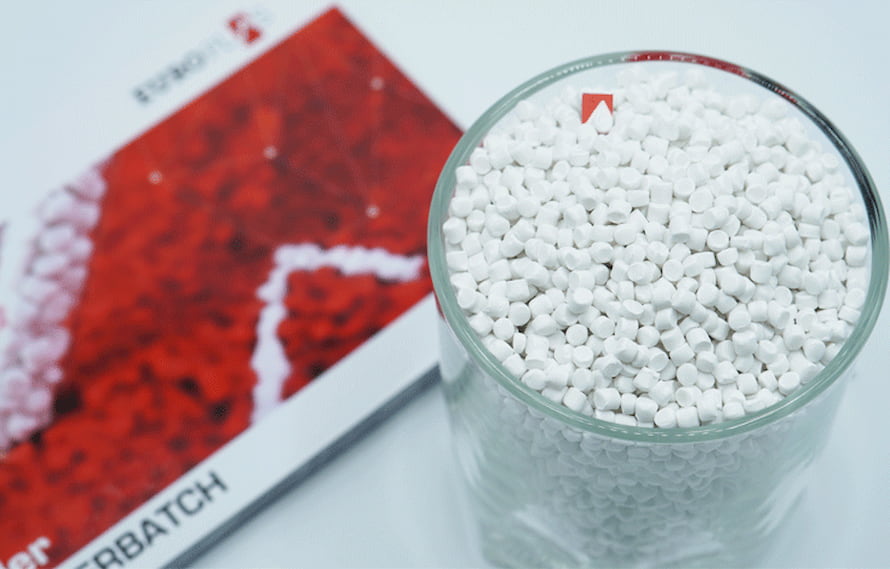
EuroPlas is the world’s largest masterbatch manufacturer, specializing in the production of high-quality plastic additives, counting additives for plastic recycling.
At EuroPlas, we're committed to using the most cutting-edge technology and strict quality control measures. Our extensive experience and expertise in the field of plastic compounds allow us to produce products that meet the specific requirements of customers in various industries. In addition, EuroPlas provides a variety of support services, such as product development, testing, and technical assistance, to its clients in order to guarantee that they obtain the highest quality goods and services that are currently available.
EuroPlas is a reliable provider that is able to match your requirements, regardless of whether you are searching for conventional or specialized additives for plastic recycling. If you are interested in learning more about EuroPlas and our additives for plastic recycling products, don't hesitate to contact us for more information.